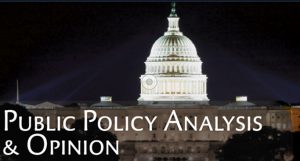 A little nonsense, now and
A little nonsense, now and
then, is relished by the wisest men
” [The NAIC says its] “priorities aim to foster an innovative, competitive,
and secure insurance marketplace, enhance access to insurance … and
strengthen coordination between the federal government and the states.”
By Kevin P. Hennosy
In the early spring of this year, the National Association of Insurance Commissioners (NAIC) announced its federal legislative and regulatory priorities for this year.
Of course they did. Bless their little heart.
Most of the NAIC’s priorities ask for political candy thrown from Washington to state capitols. The “confectionary” nature of the NAIC’s requests cast this writer’s mind back to the 1971 classic film Willy Wonka & the Chocolate Factory.
No, this is not set-up for an Oompa-Loompa joke, which some wags may expect from this writer. Now, the Willy Wonka phrase “Pure Imagination” is another topic indeed.
Even before listing the 2025 Federal Legislative and Regulatory Priorities, NAIC begins with a shameless nod in the direction of self-preservation; the association promises its priorities will lead to “further strengthening the national system of state-based insurance regulation in the United States.”
What would “further strengthening” look like in the case of the perfect, parochial, patchwork of petty captive state officials? Just what would make it even better?
The NAIC answers those probing questions by opining that the “priorities aim to foster an innovative, competitive, and secure insurance marketplace, enhance access to insurance to safeguard the financial well-being of our citizens, and strengthen coordination between the federal government and the states.” What a well-tossed word salad of empowering terms!
Or, in the words of the famous candy impresario Willy Wonka, “This little piece of gum is a three-course dinner.”
The NAIC assures federal officials of the gravitas associated with the business of insurance: “Insurance is a cornerstone of personal financial security, protecting health, wealth, and property, and it supports the U.S. economy’s large and small businesses.”
That statement is just vague enough to echo the time-honored maxim, “Breakfast is the most important meal of the day.” And, like breakfast, state insurance regulation has its own wide selection of proverbial toaster pastries to offer to the regulated sector on the go.
“As the industry evolves in response to emerging technologies, catastrophe risks, and economic shifts, state insurance regulators will continue working with all stakeholders, including the federal government, to keep insurance products and the market strong, resilient, accessible, and responsive to consumers’ needs,” explains the NAIC statement.
Mr. Wonka might have put it this way: “There’s no earthly way of knowing which direction we are going.”
Whack the FIO
In case anyone missed the NAIC’s point that state-based insurance regulation—created by a federal statute—should rule for eternity, the association’s first priority for 2025 is “Preserving and respecting states’ primary role as insurance regulators by eliminating the Federal Insurance Office (FIO).” It says, “Ensuring the future success of the U.S. state-based system of insurance regulation demands constructive coordination with our federal peers and appropriate deference and independence of the regulatory system from federal intrusion.”
Certainly, the NAIC is serious when they demand respect. Preservation does not go far enough. Respect shall be paid. To which Mr. Wonka might retort, “We are the music makers, and we are the dreamers of dreams.”
Like ancient myths and lore, the NAIC supplies a challenge designed to assess the respect for state insurance regulation of the Congress and the administration.
The NAIC document rationalizes shutting down the FIO because “the office stands in direct conflict with the states’ role as primary regulators, complicates the states’ engagement with fellow insurance regulators globally, duplicates confidential data collection from the insurance industry, and blurs the line that separates Treasury from independent financial regulator.”
Here again, the NAIC takes its role too seriously. What the NAIC fails to recognize is that state insurance regulation, like the FIO, exists only because of a federal statute. The Constitution assigns jurisdiction for interstate commerce with the Congress, and that includes insurance. The Congress made a limited and contingent delegation of that jurisdiction to the states for affirmative regulation of insurance.
The delegation of jurisdiction did not include “regulation by competition” because the complexity of insurance precludes informed consumer choice. If competitive markets could police the business of insurance, Congress would have simply allowed Antitrust Law and Federal Trade Commission oversight to apply to the sector.
The NAIC’s contention that global regulators would rather collaborate with an unruly gaggle of third-team state officials instead of a single national agency is laughable. Of course, consulting with international regulators does provide an excuse for state officials to travel overseas, which we should not overlook as a motivating factor for the state officials.
In recent years, the NAIC’s relationship with the FIO entered a death-spiral as the latter group started questioning the data collection techniques of the former. For example, when a Senate committee asked for national data related to climate-change-related claims, the NAIC dragged its feet. The association presented a national data set drawn from selected insurance companies rather than each state’s regulatory data, which was not what the committee asked for, and skewed the results to understate the impact of stronger storms in particular states.
Dear folks, send money!
Maintenance of the states’ authority to levy taxes on insurance premiums was the primary reason for the “state-based system of insurance regulation,” when Congress delegated authority over insurance to the states in 1945. However, the NAIC argues that the states should receive funding from the federal government too.
The NAIC opined that the Congress has a “crucial role” in one area: sending money to states and localities. The state insurance regulators’ unfettered appetite for federal funds is on full display in this year’s legislative and regulatory priorities.
The NAIC’s demands for federal expenditure reminded this writer of Veruca Salt, a Golden Ticket holder touring the factory with Willy Wonka, who said: “Daddy, I want an Oompa-Loompa! I want you to get me an Oompa-Loompa right away!” The trip did not end well for Veruca.
The NAIC refers to this exercise in federal check writing as “ensuring natural catastrophe resilience.” “Congress has a crucial role to play in partnership with state insurance regulators and other state leaders to promote community-based resilience and mitigation efforts aimed at addressing the growing risks posed by natural catastrophes,” according to the NAIC statement on federal priorities.
The NAIC continues to spin this yarn in greater detail: “Through targeted funding, tax incentives, and support of state mitigation programs, Congress can help protect communities by reducing the frequency and severity of losses and subsequent insurance claims.” The association promises that this kind of federal spending “would support healthy property insurance and housing markets.”
From the perspective espoused in the last two paragraphs, Congress should send bushel baskets of treasure to state and local governments with no rules governing usage or oversight. Just trust the local officials to distribute the funds to contractors as the former sees fit. What could go wrong?
As Mr. Wonka observed: “Where is fancy bred, in the heart or in the head?”

Write more checks
The last major priority cited by the NAIC also argues for the federal expenditure on health insurance products. This plea for federal funds may sound odd for the champions of state-based insurance regulation to tender.
That is until one considers that the NAIC specifies that the federal expenditure should proceed without establishing federal rules, or definitions, or any oversight, or accountability. The NAIC calls this “flexibility.”
The NAIC asks both the administration and Congress to “preserve existing state flexibilities [sic] through Affordable Care Act waivers and supporting state-based policies in areas like state exchanges and essential health benefit benchmarks.”
In what we may call a Jimmy “J.J.” Walker health policy amendment, the NAIC advises the federal government to “enhance state authority and flexibility for Medicare Advantage, Short-Term Limited Duration Plan, and Association Health Plan oversight.” These three wishes just may be granted.
Send more money
“Americans have better health outcomes when they have access to health insurance,” opined the NAIC. To this end, the NAIC recommends that “Congress should extend the enhanced Affordable Care Act subsidies, which have expanded coverage, before they expire at the end of this year.”
Furthermore, the NAIC says, “The Administration should fully fund state grants and waivers without delay, as states have leveraged these to support and expand coverage.”
“There is no life I know to compare with pure imagination,” opined Mr. Wonka.
The NAIC’s Federal Legislative and Regulatory Priorities draws to a close with a grab-bag of items: “The Administration should provide long-overdue guidance and necessary clarifications to states on important federal regulations: Section 1557 nondiscrimination rules, copay accumulator rules, and Mental Health Parity grants.”
Well, as Willy Wonka observed so many years ago, “Grasping at too much, you may lose what you hold dear.”
The author
Kevin P. Hennosy is an insurance writer who specializes in the history and politics of insurance regulation. He began his insurance career in the regulatory compliance office of Nationwide and then served as public affairs manager for the National Association of Insurance Commissioners (NAIC). Since leaving the NAIC staff, he has written extensively on insurance regulation and testified before the NAIC as a consumer advocate.




